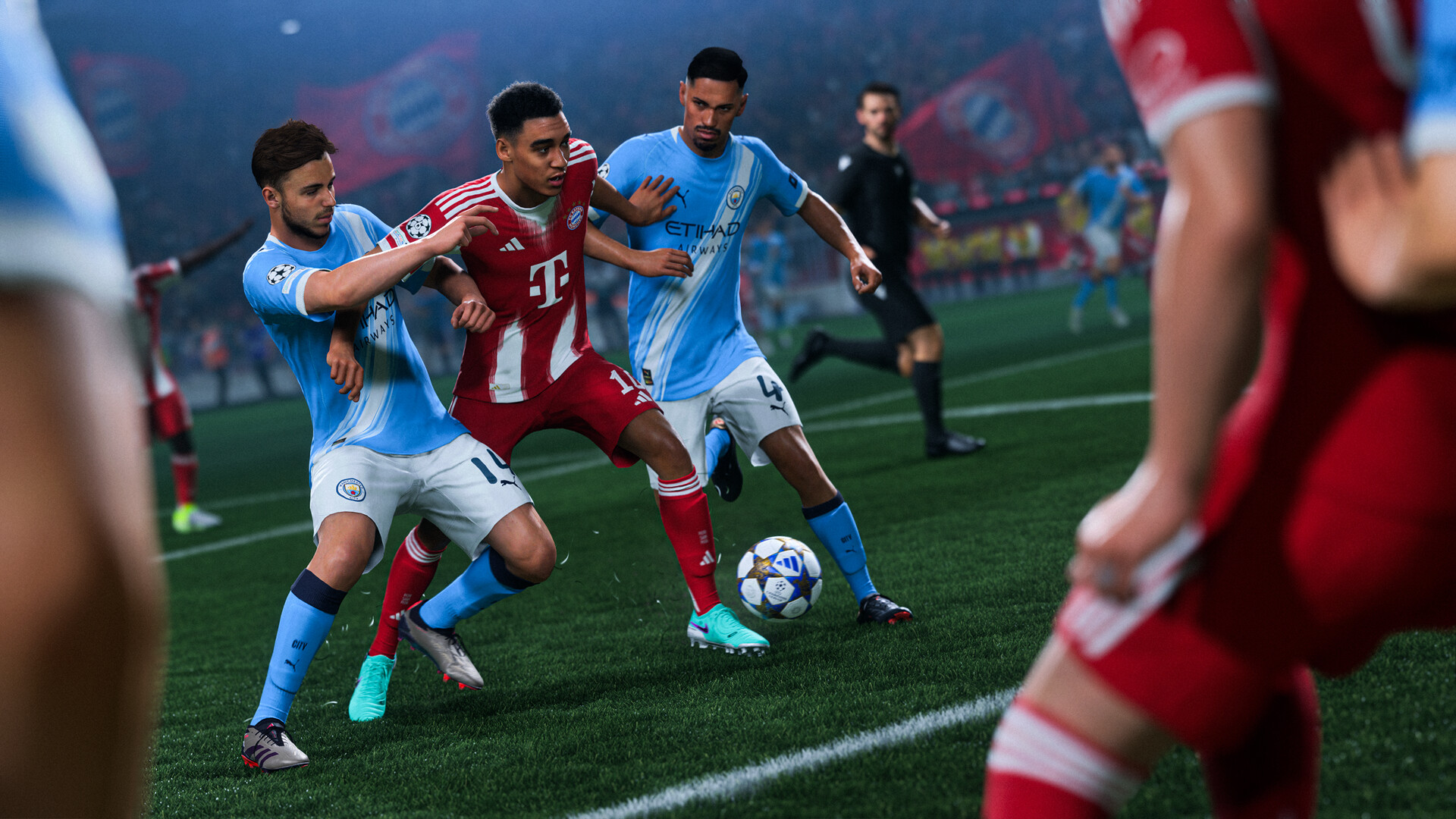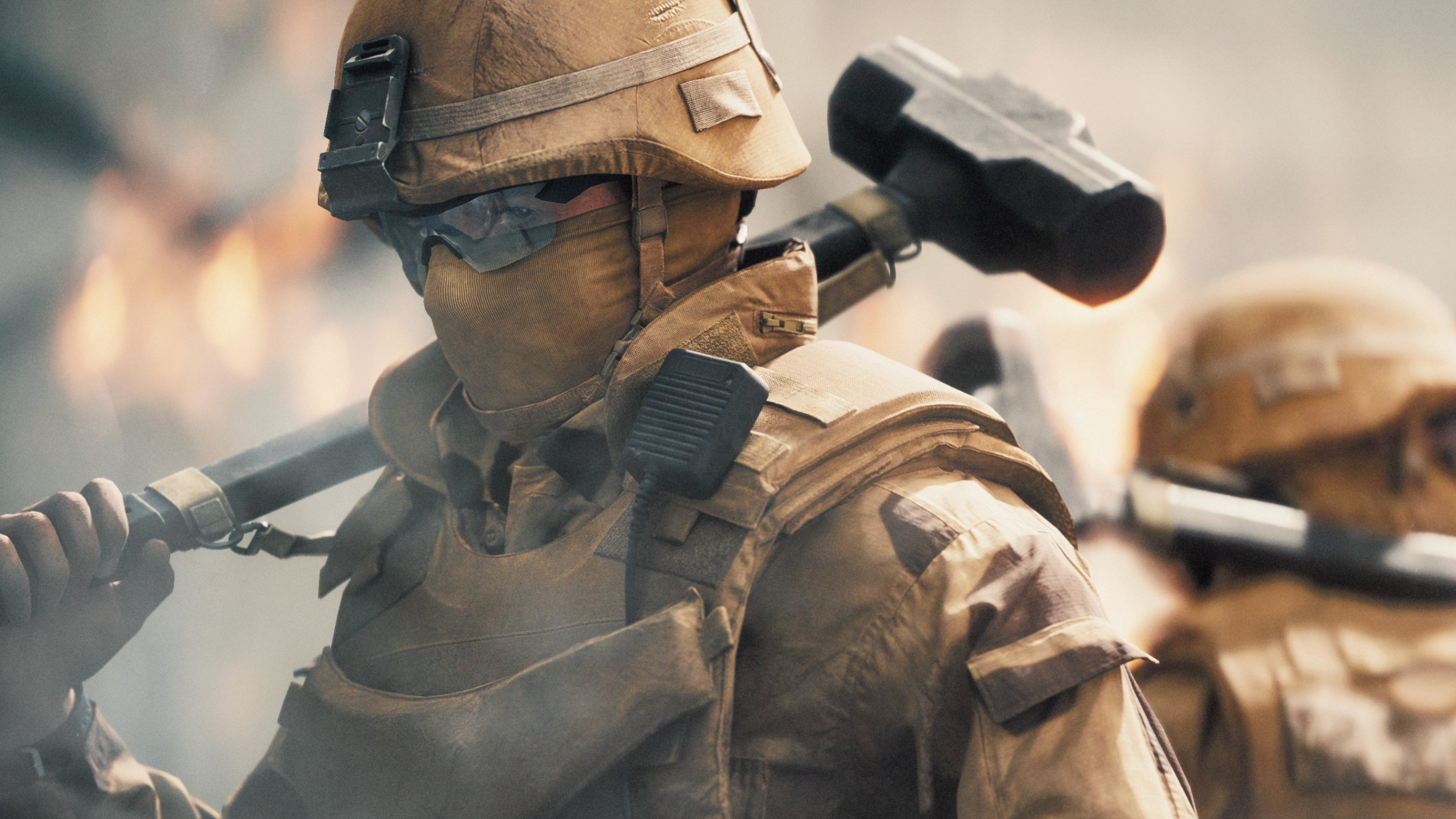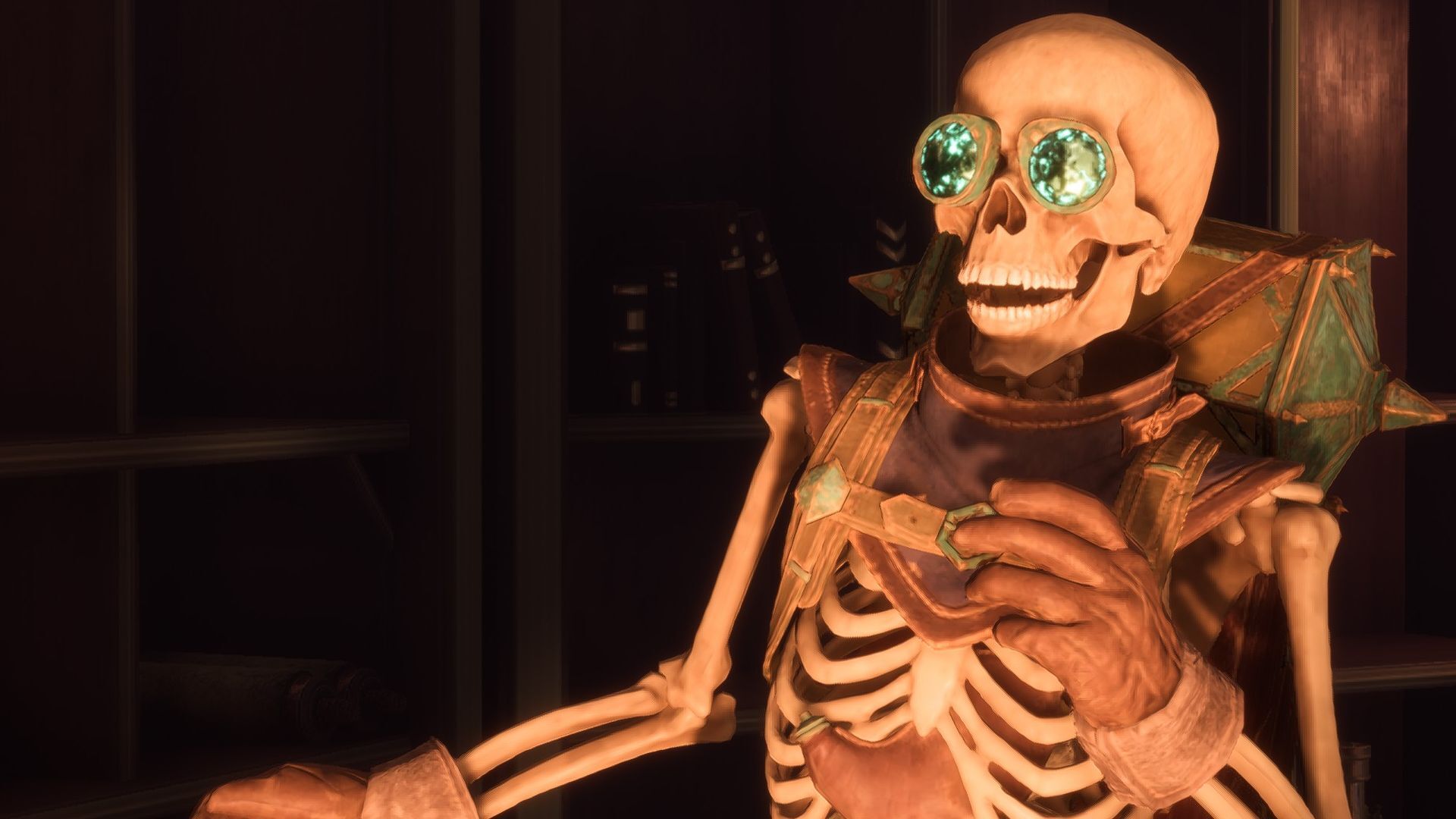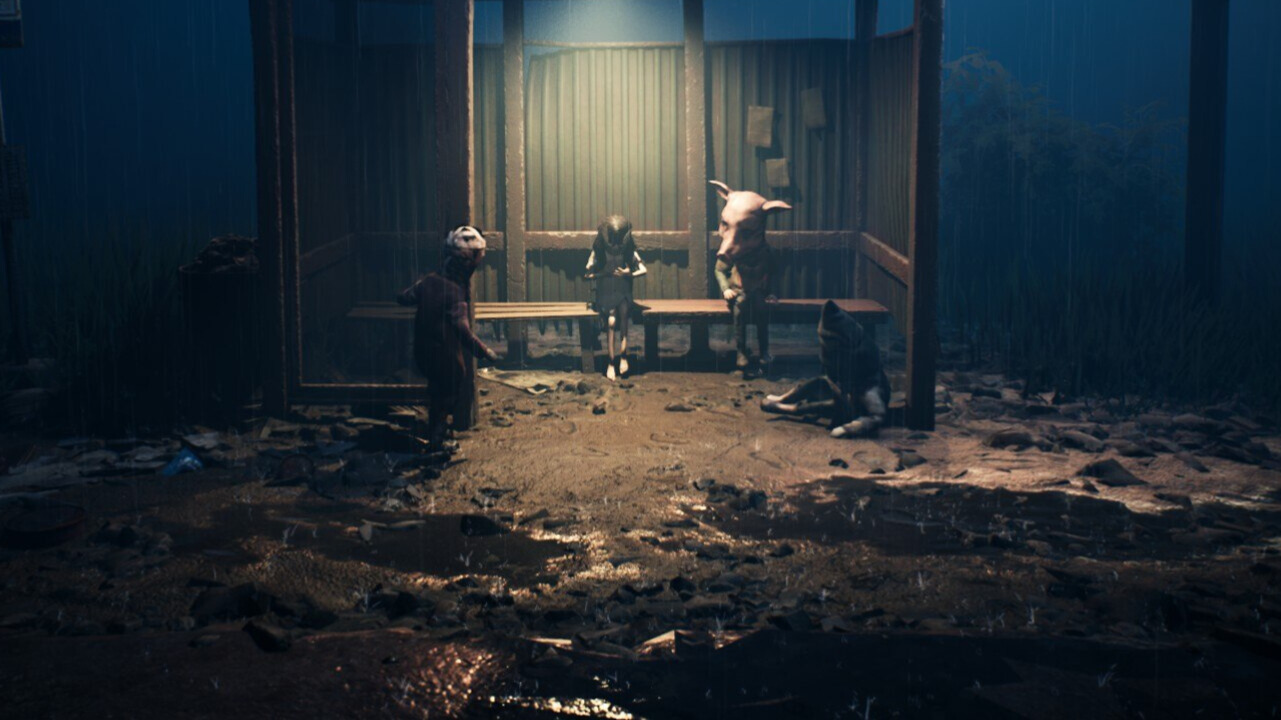EA's new owners are leaning heavily on AI to make some money and its huge debt go away, which seems like one helluva gamble to me
This is fine.

Keep up to date with the most important stories and the best deals, as picked by the PC Gamer team.
You are now subscribed
Your newsletter sign-up was successful
Want to add more newsletters?

Every Friday
GamesRadar+
Your weekly update on everything you could ever want to know about the games you already love, games we know you're going to love in the near future, and tales from the communities that surround them.

Every Thursday
GTA 6 O'clock
Our special GTA 6 newsletter, with breaking news, insider info, and rumor analysis from the award-winning GTA 6 O'clock experts.

Every Friday
Knowledge
From the creators of Edge: A weekly videogame industry newsletter with analysis from expert writers, guidance from professionals, and insight into what's on the horizon.

Every Thursday
The Setup
Hardware nerds unite, sign up to our free tech newsletter for a weekly digest of the hottest new tech, the latest gadgets on the test bench, and much more.

Every Wednesday
Switch 2 Spotlight
Sign up to our new Switch 2 newsletter, where we bring you the latest talking points on Nintendo's new console each week, bring you up to date on the news, and recommend what games to play.

Every Saturday
The Watchlist
Subscribe for a weekly digest of the movie and TV news that matters, direct to your inbox. From first-look trailers, interviews, reviews and explainers, we've got you covered.

Once a month
SFX
Get sneak previews, exclusive competitions and details of special events each month!
If corporate consolidation of one of the biggest entities in the video game industry by private equity, a Saudi Arabian investment fund, and a major investment firm doesn't signal a worrying future for EA, leveraging AI to further cut costs will do the trick.
The $55 billion required to buy out EA includes $20 billion worth of financing in the form of a loan from JPMorgan. Not paying back that loan could result in the closure of the gaming giant, like what happened with toy chain Toys R Us (via Los Angeles Times).
As reported by the Financial Times, the deal is reportedly betting big on AI cutting down operational cost for EA significantly. EA reportedly has not shouldered huge amounts of debt prior to now, and this could signal a change in business operations. It's not exactly stated how, but the Financial Times report claims that 'people involved in the transaction' suggest AI will boost profits for the company, which will then be used to pay that debt.
This AI could take the form of more efficiently managing workloads, or it could be in the form of AI-generated art and voice-over work. This approach towards AI is not new for EA, and seemed to exist under the previous management. Just last year, EA CEO Andrew Wilson said EA's developers have a "hunger" to use generative AI tools, and suggested it could be used to "build bigger, more innovative, more creative, more fun games more quickly so that we can entertain more people around the world on a global basis at a faster rate."
Just months prior, Wilson envisioned a world where three billion players were creating their own worlds with these tools.

Oversaturation seems to be prevalent in the game industry, with almost 19,000 games released on Steam last year alone. The potential of companies making more and bigger games in shorter time frames with less bespoke art to chase an ever-smaller cut of the pie feels like the opposite of what I actually want from my games.
Part of the problem with generative AI in games right now (other than the obvious ethical implications that come from scraping artists' work without consent) is that it flags a lack of care. Call of Duty using AI-generated calling cards at the start of the year left some users disappointed that their effort to earn a calling card was met with virtually no effort from Activision in response. And, it's only getting easier to get a hold of AI tools. AI assets have become a calling card (heh) of low-effort game development, and are often left forgotten in the annals of the Steam marketplace.
Keep up to date with the most important stories and the best deals, as picked by the PC Gamer team.
EA games using such assets removes that intrinsic humanness granted by hundreds of people working towards the same goal, and only makes the hundreds of real people laid off from EA projects leave an even more sour taste in the mouth.
Generative AI has proven itself handy at dealing with wide swathes of data, so there are ways it can be leveraged to help businesses, but there has been a trend over the last year of nebulously claiming 'AI will fix it' and moving on. Earlier this year, a report came out suggesting AI energy demands would quadruple in the next few years, with some large data centres estimated to use up to 5,000,000 households' worth of energy. The response to this concern is that AI will have a positive impact on the environment due to the efficiency it could bring.

Just last week, over half of Japanese game studios in a survey reported using AI at some level, so it is present in the industry, but it being pitched as a tool to chip away at that mountain of debt feels like putting the horse ahead of the AI cart. We don't know how much and to what extent AI is proving valuable to games companies, and it's all very early days.
There are naturally productivity earnings to be had in some form, but plenty of companies have seen backlash from the use of AI and how much will be gained from AI, in contrast to the money spent to actually implement it, will take some time to fully figure out. Chasing AI to deal with a debt feels like a huge gamble under these circumstances.
It could, of course, be true that EA raises efficiency and cuts costs with AI, but it's certainly not a given for the company, especially when we factor in how consumers may respond or how costly it is to implement. And that debt will linger over its head for some time, even with the recent success of the Battlefield 6 beta.

1. Best gaming laptop: Razer Blade 16
2. Best gaming PC: HP Omen 35L
3. Best handheld gaming PC: Lenovo Legion Go S SteamOS ed.
4. Best mini PC: Minisforum AtomMan G7 PT
5. Best VR headset: Meta Quest 3

James is a more recent PC gaming convert, often admiring graphics cards, cases, and motherboards from afar. It was not until 2019, after just finishing a degree in law and media, that they decided to throw out the last few years of education, build their PC, and start writing about gaming instead. In that time, he has covered the latest doodads, contraptions, and gismos, and loved every second of it. Hey, it’s better than writing case briefs.
You must confirm your public display name before commenting
Please logout and then login again, you will then be prompted to enter your display name.

